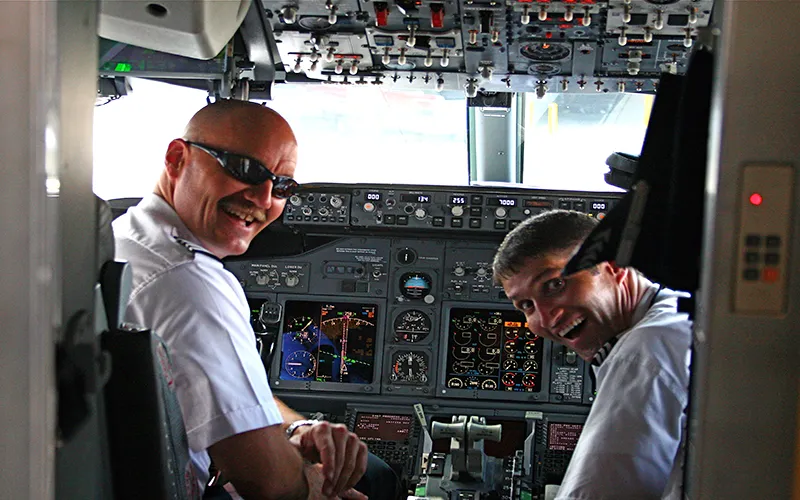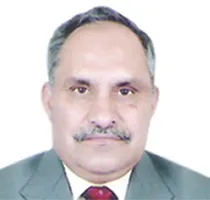-
CENTRES
Progammes & Centres
Location
Given that pilot training is solely based on an individual's ability to afford it, and his selection by airlines dependent not just on an assessment of his capabilities but also the question of supply and demand, we can be fairly certain that unless this aspect is given due consideration, incidents like that of Germanwings will continue to plague us.

As details of the horrific events leading to the death of 150 passengers and crew aboard the ill-fated Germanwings Airbus A320 flight between Barcelona and Dusseldorf emerge, one is forced to confront our deepest fears about the more dangerous aspects of air travel. The co-pilot, 28 year old Andreas Lubitz, intentionally locked out the commander from the cockpit and then deliberately crashed the aircraft into the Alps in France. Certainly, even Mr Carsten Spohr, the CEO of Lufthansa, of which Germanwings is a wholly-owned subsidiary, an airline known for its emphasis on safety, security and training, was left speechless at the turn of events, as he admitted at his press briefing. More details are bound to emerge as the investigation progresses and we may even get lucky enough to understand what motivated the young co-pilot, a German national, to do the unthinkable. By his actions he has not only cut short the lives of the passengers and crew aboard, but also traumatised and maybe even irretrievably changed the lives of many of their families and friends. By his actions, he has also endangered the career of quite a few of his colleagues as certainly there is a likelihood of the business viability of Germanwings coming under question in the future.
While this has been a one-off incident for the airline, there are some disturbing precedence's in the past two decades. In the 1997 crash of Silk Air Flight 185 in Indonesia, while the American regulators believed it to be a deliberate act on the part of the commander, the investigation by the Indonesian authorities was inconclusive. This, however, was not in doubt in the crash of Egypt Air Flight 990 off the New England coast in the United States in 1999, in which the Captain was unsuccessful in preventing the co-pilot from deliberately switching off the engines.The mystery surrounding the disappearance of Malaysian Airlines Flight 370 is too recent to bear elaboration.
One need not be an aviation expert to understand that, despite all efforts to regulate selection, training, security and safety processes, deliberate acts of this nature can never be prevented, especially if it was spur of the moment decision, as this one may have been. Notwithstanding this, every effort has to be made by all airlines and aviation regulators, including our own, to review existing procedures and improve them to the extent feasible. For example, while some regulators mandate that another crew must be present in the cockpit when either the pilot or co-pilot leaves it for any reason, other regulators do not. May be if that had been the case in this particular incident, the co-pilot may have been stopped from committing this horrendous act.
However, one issue that certainly needs to be addressed at the earliest is that of pilot selection. In the past, the airline industry met its requirements of pilots by picking up young men and women through an extremely tough and detailed selection process and then training them at company cost. Since the training process was time consuming and expensive for the airlines, it was but obvious that they instituted an extremely deep and robust selection process to ensure that drop-out rate was kept to the minimum. However, as competition got stronger with de-regulation, airlines had to come up with innovative ways to protect their bottom lines. A casualty of this certainly has been pilot selection since airlines stopped spending on basic pilot training, which the individual had to undergo at his own cost at some training academy, and switched to hiring trained and qualified pilots. While selection processes may still be fairly detailed and include various medical and psychological testing, it can in no way be comparable to the system followed earlier.
National Air Forces continue to select and train potential pilots in a fashion similar to what airlines followed in the past, because the training period can then be utilized not only for providing training in technical and professional subjects but also to fully assess the candidates suitability based on an in-depth analysis of his personality, character traits and numerous other parameters. Given that pilot training in our country and elsewhere is solely based on an individual's ability to afford it, and his selection by airlines dependent not just on an assessment of his capabilities but also the question of supply and demand, we can be fairly certain that unless this aspect is given due consideration, such incidents will continue to plague us and we will continue to fly on the wings of a prayer.
(The writer is a former military veteran and consultant with Observer Research Foundation)
Courtesy: The Pioneer
The views expressed above belong to the author(s). ORF research and analyses now available on Telegram! Click here to access our curated content — blogs, longforms and interviews.

Brig. Deepak Sinha (Retd.) was Visiting Fellow at ORF. Brig. Sinha is a second-generation paratrooper. During his service, he held varied command, staff and instructional appointments, ...
Read More +